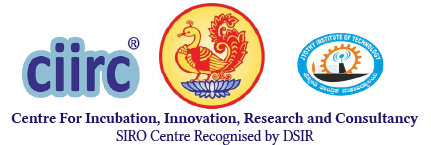Overview
ब्रम्ह तद वनमं, ब्रम्ह सा वृक्ष: असा ।।
“Forest is god, tree is god”
Plants, undoubtedly, play a very vital role in the chain of life. Ancient Vedas and Puranas have praised trees and have given them utmost importance. In almost all ancient Hindu scriptures trees have been praised. From times immemorial, from Ramayana and Mahabharata to modern times, many rituals are related to trees. Understanding the way plants grow, reproduce, and prosper is a dynamic area of science.
The Plant and Microbial Technology (PMT) team mainly focuses on carrying out research in the area of plant biotechnology, microbial technology, natural products, drug discovery and agricultural microbiology. PMT aims in facilitating development of products that will benefit the society as a whole. The Lab also offers various training programs in emerging areas of life science, such as plant tissue culture, orchid cultivation, and molecular technique among others.


Overview of the research and product development in the Plant and Microbial Technology Lab
Plant Biotechnology
Modern technology has brought in a sea of change in the way scientists approach plants and study them. Advancements in biotechnology have influenced the study and development of new plant varieties and their propagation in a big way. Plant tissue culture and allied fields form a vital cog in this. The plant tissue culture facility at the PMT lab is a state-of-art facility with provisions to maintain up to 3000 plant cultures at any point of time. The lab also has advanced instrumentation facilities to extract, analyze and validate various therapeutic plant secondary metabolites.
The focus of research in this domain is identification of therapeutic properties in various ethno-botanically important plants with special emphasis on wild orchids of the Western Ghats. The lab is actively involved in the study of various endangered orchids with respect to their method of propagation, their medicinal properties and emphases on developing innovative and useful products benefitting the common man. The focus is on plant based natural products. Currently, the research team is in the process of developing various herbal based health care and wound care products such as spray for treating burns and cream for healing wounds. The lab is also involved in developing herbal based utility products for households such as vegetable and fruit disinfectant, soluble turmeric concentrate, etc.
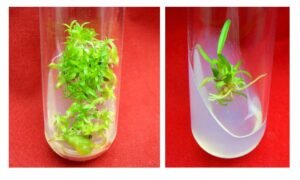
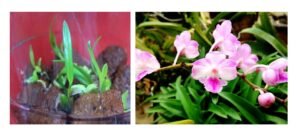
Microbial Technology
Agriculture plays an imperative role and is considered as backbone of India’s economy. Over 58% of rural households depend on agriculture for their livelihood. A large proportion of India’s export trade is based on agricultural products. Increasing population leads to a greater demand of production; hence, increase in agricultural productivity is the main target to meet the human needs.
Modern agricultural practices are heavily dependent on the use of chemical pesticides, inorganic fertilizers, and growth regulators that not only have raised the agriculture production, but have also resulted in depletion of natural resource leading to environmental deterioration and loss of crop diversity. Modern agriculture which advocates rampant use of chemical fertilizers is not sustainable in the long run; therefore, the concept of sustainable agriculture has emerged in recent years to emphasize more on the conservation of natural resources and environment. The need for sustainable agriculture can be achieved by engineering the rhizospheric micro flora.
Bio inoculants are the formulation of advantageous microorganisms that, when added to the soil directly or indirectly, improve nutrient availability to the host plants and promote plant growth. The PMT research team focuses on developing a consortium of beneficial microorganisms to enhance the growth and yield of various horticulture as well as medicinal plants. In this direction, the team has already made strides in developing related products such as bio-fortified liquid manure for improved growth of various crops with special emphasis on cash crops, such as coffee, arecanut, pepper etc.The team also concentrates on production of several medicinally important secondary metabolites from beneficial microorganisms. Additionally, significant amount of research is focused on extracting industrially important enzymes from microbial origin.
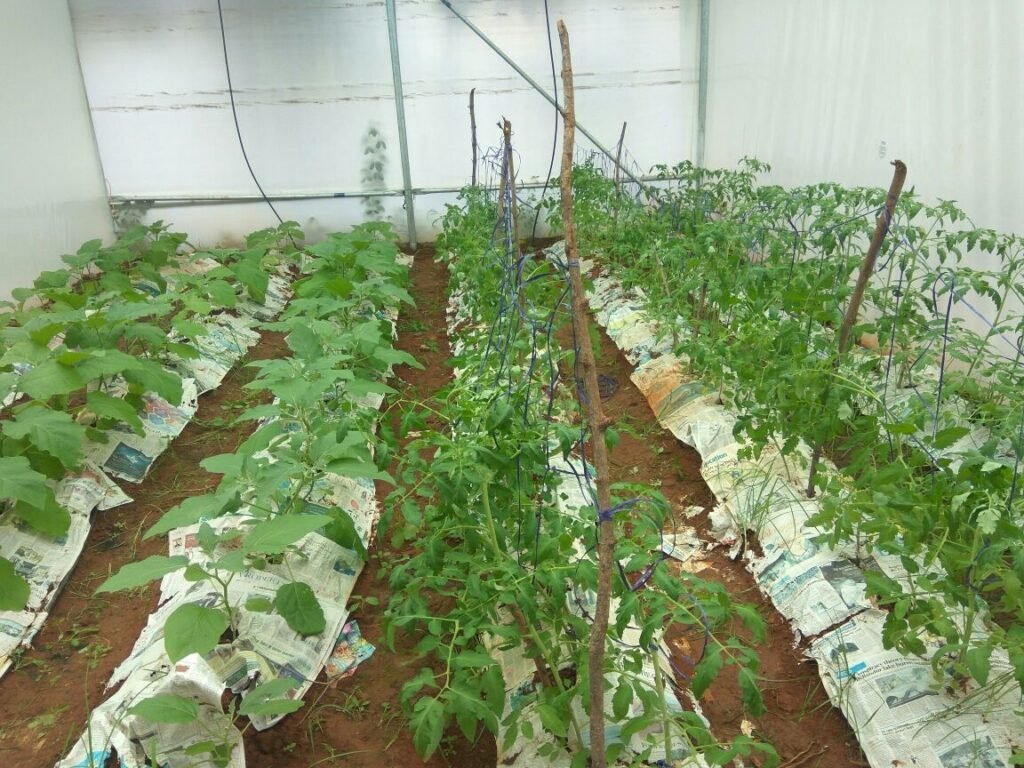
Coffee
Coffee, often considered as the world’s favorite beverage, is also one of the most traded commodity in the world. India produces some of the finest Robusta coffee and is a vital contributor to India’s forex revenues through large scale exports to various European countries and the USA. A lot of efforts are now being put in by many R&D centers across India to improve India’s coffee output and quality. PMT lab is involved in coffee related research in terms of novel coffee blend development, coffee waste utilization, value added products from coffee and coffee waste, etc. Researchers at the lab also undertake consultancy services for coffee brands in areas such as blend development, cupping and characterization, etc.
Product Description
Dezinfecta is a hyper-concentrated solution prepared out of purely edible natural products and herbs used for effective removal of dirt, pesticides, insecticides and microbes from the surface of vegetables and fruits. The product, when used to clean vegetables and fruits, helps them stay fresh for a longer period of time, even without refrigeration. Compared to washing with water, use of Dezinfecta ensures removal of 99% of germs, pesticide, insecticide and herbicide residue from daily use vegetables and fruits. The product has been tested extensively and found to be effective in degrading most commercial pesticides and insecticides. The efficiency was validated through tests done at M/s Eurofins Analytical Services India Pvt. Ltd., one of the world’s leading analytical test service providers. The product exhibited powerful antimicrobial property and has been proven to kill 99% of all harmful bacteria and fungi present on the surface of vegetables and fruits. It is eco-friendly, safe to use on a daily basis and does not leave any residue or after-taste. It works well on all kinds of fruits and vegetables, including green leafy vegetables.

NuvoHeal- B is an edible oil-based lotion which includes various plant extracts identified in folklore medicine as having high skin regeneration properties. NuvoHeal-B has proven to be very effective in treating first and second degree burns as per initial test results done internally. Currently, further research on improvisation of the same is being carried out with the focus of developing a market comparable product.
 NuvoHeal-C is a purely herbal-based cream targeted at healing surface wounds and cuts. Initial random trials done in-house have shown encouraging results when applied on different kinds of wounds compared to other commercially available ointments. Basically, the cream consists of herbal extracts mentioned in Indian folklore. Currently, the product is undergoing tests for product approval from the Ministry of Ayush.
NuvoHeal-C is a purely herbal-based cream targeted at healing surface wounds and cuts. Initial random trials done in-house have shown encouraging results when applied on different kinds of wounds compared to other commercially available ointments. Basically, the cream consists of herbal extracts mentioned in Indian folklore. Currently, the product is undergoing tests for product approval from the Ministry of Ayush.

Nuvoharidra Turmeric and Pepper Concentrate is a fully water-soluble concentrated extract of turmeric and pepper prepared using proprietary technology from high quality turmeric rhizome and pepper corns. The product is intended to be used as a nutritional supplement aiding in an overall healthier lifestyle for consumers. It possesses antiseptic properties and works well as an immune-modulator once inside the body. It also has high antiviral activity and can even be used as a replacement of turmeric powder in household cooking.

NuvoImmuno is a proprietary herbal-based health mix powder intended to boost general immunity and enhance overall body wellness. Regular consumption of a delicious cup of NuvoImmuno health drink helps in building the body’s self-defense against pathogens such as viruses, bacteria, etc. NuvoImmuno health mix powder is made out of 100 % natural ingredients and is safe to consume without any reported side-effects. It blends folklore knowledge secrets with modern processing methods resulting in a highly potent, yet “true to traditional” formulation.

COFFEE
Acme
ACME, an ecstatic blend of finest coffee sourced from the majestic slopes of Eastern and Western ghats of India, offers a perfectly longed coffee with lively acidity. Aromatic Arabicas from the Shevaroy hills of Eastern Ghats are sublimely fused with Royal Robustas from Wayanad ranges, Western Ghats, to create this unique handcrafted coffee. Only the best berries are handpicked and evenly roasted in micro batches under ideal conditions to ensure one always gets that cup of resplendent coffee.

Allura
Allura is 100% premium arabica coffee sourced from Hanbal estate, Sakleshpura, Karnataka. The 80 year old estate, at an altitude of 3100 feet, is nestled in the lap of Western Ghats at the foothills of Devaramane hills, where Mother Nature brews together all the resplendent shades she possess. Coffee here is grown in semi shade with rich fruit trees like jackfruit, sapota and wood apple providing ideal cover for the berries to flourish and nurture into exquisites themselves. The pepper wines growing intertwined on the silver oak and the intercropped tall arecanut trees confer the coffee here with unique spicy notes, while the fruit trees impart their subtle fruity notes on each and every bean.
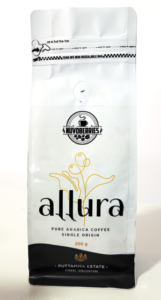 Marvela
Marvela
They say, a good day starts with great coffee. Nuvoberries Marvela filter coffee is made from superior beans sourced from handpicked estates across some of the finest coffee growing regions of South India and roasted to perfection using state-of-art machines, Marvela provides resplendent aroma, ideal strength and rich taste in every cup.

- Synthesis and bio evaluation of soluble sodium copper chlorophyllin complexes from the leaves of Aloe vera. G S Nagananda, et al.,, South African Journal of Botany, 2021. IF- 2.315
- Plant growth promoting activities of rhizobacteria isolated from rhizospheric soils of rural Bangalre, India. Swetha S, et al., Plant Archives, 2021, 21(2), 44-51. SJR: 0.123
- Mathematical approach to analysis of therapeutic properties of four important flowers mentioned in Siribhoovalaya- An ancient Indian multilingual manuscript. Nagananda G S, et al.,, Indian Journal of Traditional Knowledge, 2020, 19(4), 804-812. IF: 0.757
- A novel disposable electrochemical DNA biosensor for the rapid detection of Bacillus thuringiensis. Sandeep Suryan, et al., , Microchemical Journal, 2020, 157. IF: 4.821
- An ethnobotanical comparative analysis of the pharmacological aspects of Annona reticulate, Annona squamosal and Annona muricata, with mathematical modeling. Sandeep Suryan, et al., RJPBCS, 2018, 9(1), 326-336. SJR: 0.121
- Mitigation of drought stress by Priformospora indica in Solanum melongena L. cultivars. S Swetha, et al., Proc. Narl. Acad. Sci., India, Sect. B Biol. Sci., 2019. IF: 0.96
- UV-Visible Spectrophotometer
- Binocular Microscope
- Rotary Evaporator
- Centrifuge
- Laminar Air Flow Chamber
- Orbital Shaker Incubator
- Plant Tissue Culture Facility
- Greenhouse
“An Innovative Approach to Mitigate Bacterial Contamination of Musa sp Explants in Tissue Culture Using Host‐Specific Phages” – RRGS/F – VGST, GoK
Development of an Efficient Microbial Consortium for the Enhancement of Plant Growth and essential Oil Yield in Eryngium foetidum under Abiotic stresses- A New Approach towards organic farming- ECR,DST
Productization of CT- DIC
Purification and characterization of active plant secondary metabolites having therapeutic applications- SSPS
In vitro Propogation and Conservation of Medicinally Important Orchids of Western Ghats- SSPS
Development of Carrier Based Inoculum/ Formulations for the Growth and Yield of Horticultural Crops Under Greenhouse Conditions- SSPS

Nagananda
Nagananda obtained his Masters degree in Botany from BU in the year 2005 with specialization in Plant Cell, Tissue and Organ Culture and Cytogenetics, Master of Philosophy from Bharathidasan University in 2008 on developing a herbicide resistant variety in Vigna radiata through somaclonal variations, Doctor of Philosophy in Botany from Karpagam University with the thesis entitled “In vitro propagation and conservation of Flickingeria nodosa a vulnerable Orchid plant of high medicinal value” and also awarded the Askel Love prize for the best original research paper. Under the guidance of Prof. Ananda Rao, Orchidologist and former president “The orchid society of Karnataka” Nagananda was instrumental in establishing an open air orchidarium in Lalbhag , where he has collected numerous orchids from the Western Ghats and developed a strong database on the medicinal aspect of orchids. His work on Orchids was highlighted in Agricell Report, USA in the cover page as “Brick Pieces – A novel plant tissue culture supporting material.” He has been awarded with a Research Grant from VGST, GoK. His other areas of interest are in traditional medicine, Hindustani and Carnatic music. He has numerous publications and products developed to his credit and is working as an Assistant Professor.
Email Id: nagananda.gs@ciirc.jyothyit.ac.in

Sandeep Suryan
Sandeep Suryan is a postgraduate in industrial biotechnology from Bharathiar University, Tamil Nadu, and is an Assistant Professor at the Centre. After his post-graduation, he sharpened his skills in bioprocess engineering from IIT, New Delhi. Previously, he worked at Genohelix Biolabs where he was actively involved in research, training, administration, management of lab resources and marketing of courses and services. He then moved to the Centre for Emerging Technologies, Jain University, where he pursued research on plant secondary metabolites and explored their therapeutic potential. Sandeep’s core research interests are recombinant DNA technology and fermentation biotechnology. He is also actively involved in multidisciplinary research. He has several publications in international journals and has received accolades for outstanding contribution to research activities at Jain University. Besides his professional interests, Sandeep is passionate about travelling, photography, and automobiles.
Email Id: sandeep.s@ciirc.jyothyit.ac.in

Swetha Seshagiri
Swetha Seshagiri has a Masters degree in Microbiology from Government Science College, Bangalore during 2006-08 and Doctoral degree for her thesis entitled “Interactions of Piriformospora indica with Solanum melongena L.” She has eight years of research experience having worked as Researcher at the Centre for Emerging Technologies, Jain University. Swetha has worked on inactivation of water borne pathogens using nanoparticles (water disinfection) and also on antimicrobial activity of newly formulated Ayurvedic drugs. She has filed three patents, alongside twenty five publications in peer reviewed international journals and attended several national and international conferences. She has attended several entrepreneur development programmes. She has also successfully worked on projects of VTU, DST and DRDO during her research career and successfully completed Early Career grant from DST. Additionally Swetha is also a certified Coffee barista and taster and works as an Assistant Professor.
Email Id: swetha.s@ciirc.jyothyit.ac.in
